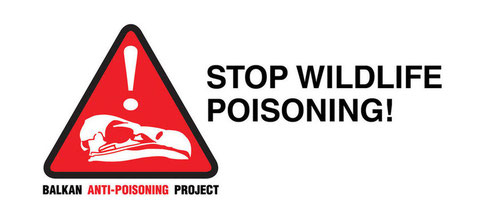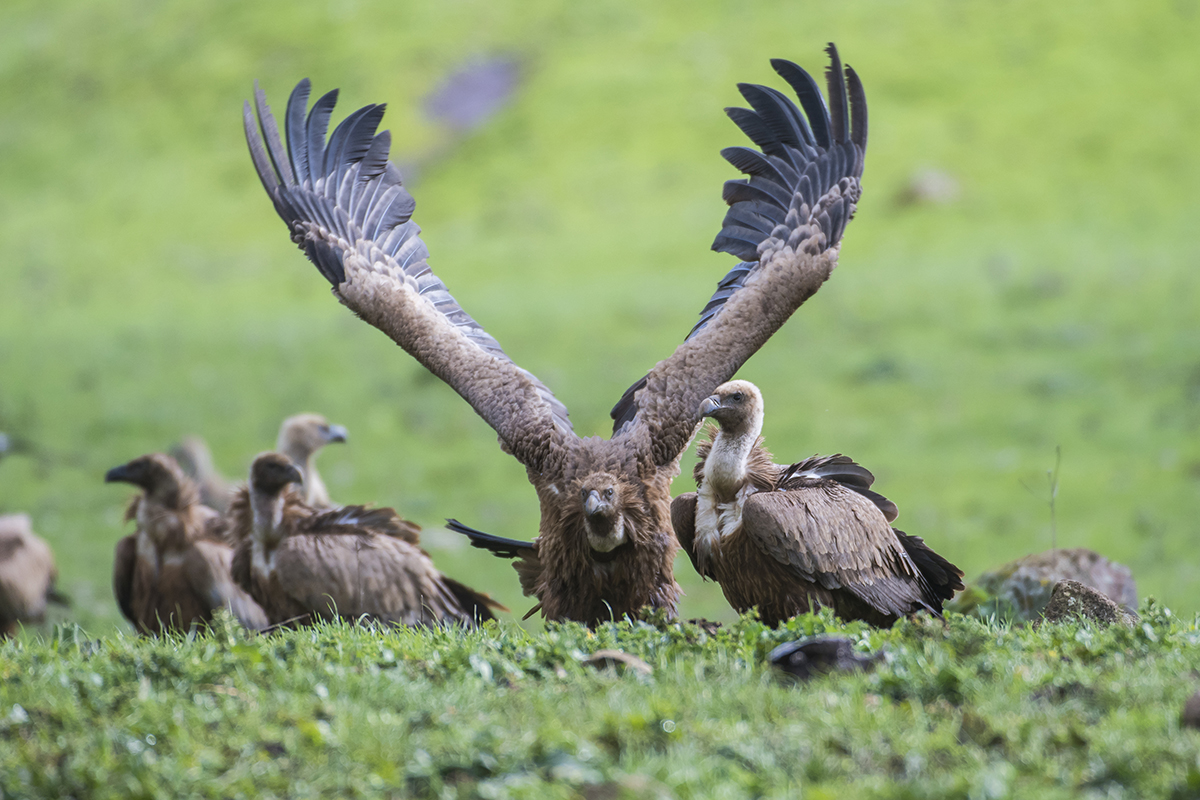
Our partners from Croatia, Association BIOM, continue the good work towards combating the practice of illegal wildlife poisoning in the country. The focus of their work this year, through the implementation of the Balkan Anti Poisoning Project (BAPP) Small Grant Programme, has been the development of a national database for wildlife poisoning and the official establishment of the National Anti-Poisoning Working Group (NAWG) in Croatia under the relevant governmental authorities.
National Anti-Poisoning Working Group actions
Due to the increased efforts of NAWG members, particularly by the representatives of the Forensic Center “Ivan Vučetić” from the Croatian Veterinary Institute and Faculty of Veterinary Medicine Zagreb, significant knowledge is gathered on wildlife poisoning in Croatia. During the last quarter of 2019, findings were presented in three conferences (including the European Vultures Conference) with poster presentations. All of the findings suggest that Carbofuran is the most commonly used substance for wildlife poisoning in the country. All collected data so far, as well as future data, will be stored in the database that BIOM is currently developing. Additionally, a paper on wildlife poisoning in Croatia is currently being drafted by NAWG members.
Download the poster presented in conferences
Poster Tišljar et al VZS 2019 final_com
Adobe Acrobat Document 2.3 MB
Priority actions for the future
During the working meetings of the NAWG, several priority actions were defined, which should be the focus of future anti-poison work in Croatia. A vital action that is currently underway is the development of a Protocol for monitoring and reporting the occurrence of animal poisoning in Croatia. In addition, capacity building among relevant stakeholders (training and equipment) and official formalization of the NAWG under the relevant governmental authorities were also defined as future actions. These actions are also in line with the National Anti-poisoning Road Map, drafted during the previous phase of the BAPP project in Croatia. These priorities were presented to the Ministry of Environment and Energy and plans were made to include the needs of anti-poisoning work into the proposal of Croatian Prioritized Action Framework document (PAF) for the NATURA 2000 network in Croatia. One of the important key points from these meetings was the discussion on future ordinance or another type of legal actions for procedures in cases of poisoning.
Collaboration and coordination against poisoning
Coordinative work efforts from the members of the NAWG also resulted in fast responses to wildlife poisoning incidents on the field. Timely response from the right authorities is a key component for investigation procedures of poisoning incidents and also for prevention of secondary poisoning in the environment.
Securing real and continued engagement of the relevant national governmental authorities against illegal wildlife poisoning and increasing their capacity to counteract is crucial when combating the issue of wildlife poisoning and is exactly what we here at the VCF are aiming to achieve with BAPP project throughout the Balkan region.
The Balkan Anti-Poisoning Project Small Grants Programme
The Balkan Anti-Poisoning Project Small Grants Programme is the first time we at the Vulture Conservation Foundation have run a grant programme, and with this we aim to reinforce national capacities within relevant governmental authorities and conservation NGOs from six countries (Albania, Bosnia and Herzegovina, Croatia, Greece, North Macedonia and Serbia) of the Balkan Peninsula. This work will support those organisations to improve the skills and capabilities in the detection and mitigation of poisoning incidents through the implementation of previously developed National Roadmaps and Strategies. More specifically, through these small grants we endeavor to secure the implementation of priority anti-poisoning actions listed in the National Anti-Poisoning Road-maps/Strategies, strengthen the capacities of relevant national governmental institutions in combating the illegal use of poison baits, improve the enforcement of relevant legislation and attract other funding opportunities for implementation of large-scale anti-poisoning projects in the region. Through the support of the MAVA Foundation, we managed to dedicate a budget of €60.000 for these small grants.
Balkan Anti-Poisoning Project

The Balkan Anti-Poisoning Project is a cross-border initiative bringing together wildlife conservation organisations, governmental agencies and other stakeholder such as; hunting associations, farmers and scientists, in six Balkan countries to tackle illegal wildlife poisoning.
Funded by the Mava Foundation we aim to secure real and continued engagement of the relevant national governmental authorities in the Balkan region against illegal wildlife poisoning and increase their capacity to counteract it and working together to take positive steps to protect vultures.
The Balkan Anti-Poisoning Project is a partnership between us here at the Vulture Conservation Foundation and the Albanian Ornithological Society-AOS, Protection and Preservation of Natural Environment in Albania-PPNEA, Ornithological Society “Naše ptice”,Association BIOM, Hellenic Ornithological Society-HOS, Macedonian Ecological Society-MES and Društvo za zaštitu i proučavanje ptica Srbije.
The Balkan Anti-Poisoning Project also contributes directly into the implementation of the Vulture Multi-Species Action Plan by carrying out anti-poisoning actions in Albania, Bosnia and Herzegovina, Croatia, Greece, North Macedonia and Serbia, and is building on our work for the last decade in the Balkans through the Balkan Vulture Action Plan.




